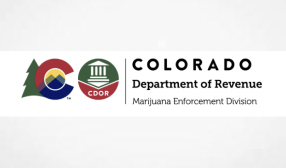Making sure your COGS are accurate is the best way to ensure your tax liability is accurate as well, and working with a seasoned accounting professional can give you that peace of mind.
Thinking that only dispensaries have to worry about taxes to their cannabusiness? Think again. Entrepreneurs, processors, and cultivators in the cannabis industry may be subject to taxation, and it’s important for them to understand the complexities around their tax implications.
That’s because the taxation of enterprises that grow, process, and sell cannabis is far more complicated than a basic business filing. To avoid the consequences of filing incorrectly, here are the top three things that cannabusiness entrepreneurs need to know when next year’s tax season rolls around.
Familiarize Yourself with IRC Sec. 280E
IRC Sec. 280 E sets the guidelines for cannabusiness’ taxation. The most critical part of the guidance states, “No deduction or credit shall be allowed for any amount paid or incurred during the taxable year in carrying on any trade or business if such trade or business consists of trafficking in controlled substances which is prohibited by Federal law or the law of any State in which such trade or business is conducted.” So, what does that mean for cannabusiness owners? Do they have to pay tax on all gross revenue? Yes and no. Inventory creates an advantageous situation for categorizing a number of business costs as Cost of Goods Sold (COGS). This provides an opportunity for these entrepreneurs to benefit from tax deductions under IRC Sec. 471.
Know What Qualifies as COGS
Another way to think of COGS is to basically assess the cost of products necessary for the operation of business. For cannabusiness owners, that can mean the cost of clones and seeds, the cost of flower and trim, and the cost to produce cannabis products like pre-rolls and gummies for consumers. IRC Sec. 147 ensured that these critical costs incurred by cannabusinesses be classified as deductibles for income tax purposes.
However, this means that these entrepreneurs must be diligent in their cost accounting or risk leaving deductions on the table – or worse – taking wrongful deductions that can have consequences for your business. That’s why if cost accounting wasn’t a major priority for these owners prior to IRC Sec. 471, it’s critical that it is now. If the IRS finds that an erroneous deductions were made, they can enforce a penalty where cannabusiness owners may be required to pay up to 20% of the excessive amount claimed.
Read the full article and advice at
















